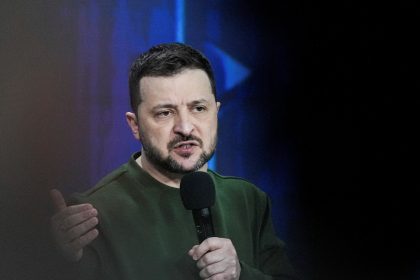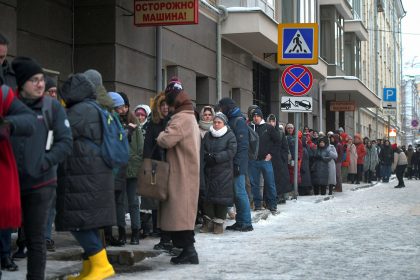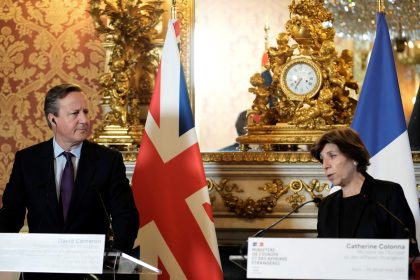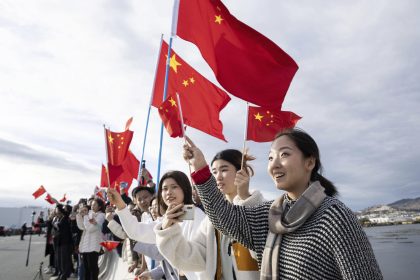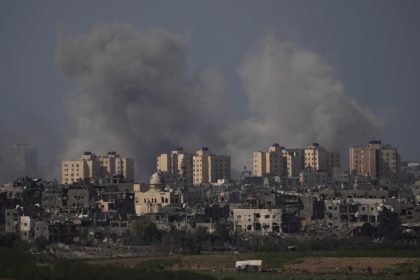Congress Says Russia’s Waning Influence Creates New Threats and Challenges

WASHINGTON — As Russian missiles continued raining down on Ukraine, foreign policy experts at a congressional hearing Wednesday predicted the hostilities and economic consequences will long surpass the war.
Russia’s economic and political influence in the world is being severely damaged but its nuclear threat will continue, they said.
The House Foreign Affairs subcommittee on Europe, Energy, the Environment and Cyber held the hearing days after the Ukrainian military regained control of the strategic port city of Kherson, which was one of the first to fall to Russian invaders.
The U.S. Defense Department estimates the Russians have suffered more than 100,000 casualties as the Ukrainians advance against them.
“Its economic outlook continues to worsen,” Rep. William R. Keating, D-Mass., said about how international sanctions are hurting Russia.
A recent Russian economic report showed a 5% contraction in its economy since its military invaded Ukraine in February.
The sanctions imposed by the European Union and United States place severe restrictions on Russian imports and exports. Sanctioned Russian oligarchs and financial institutions have been forced to divest their foreign assets. Banks in several countries have curtailed their ties with the Russian financial sector.
One concern confronted by the House Foreign Affairs Committee is whether Russia’s weakening economy and influence will make it desperate, perhaps raising the threat its roughly 2,000 nuclear warheads create for the United States and allies.
“The U.S. must face the reality of increased nuclear saber-rattling,” said Keating, who chairs the subcommittee on Europe, Energy, the Environment and Cyber.
Foreign policy experts told the committee the war in Ukraine is like a “playbook” for other international disputes. They include China’s plans to invade Taiwan, the security of world energy supplies and U.S. commitments to helping allies.
“They are fighting for our freedom,” said Heather Conley, president of the German Marshall Fund of the United States.
She warned that Ukraine is only one of the places Russia is waging its war.
Russians also are using disinformation on social media platforms to undercut their adversaries, infiltrating European political arenas and revamping their corporations to evade international sanctions.
“We need increased vigilance and action to make sure it does not reconstitute its powers,” Conley said.
Rebeccah Heinrichs, a senior fellow at the Hudson Institute public policy foundation, said anything less than victory for the Ukrainians runs the risk of merely pausing conflicts with Russia and its allies.
“Pressuring Ukrainians for a ceasefire at this point would be a serious mistake,” Heinrichs said.
She added, “China remains the pacing threat.”
She was referring to China’s military buildup as it seeks to reclaim Taiwan as part of its own territory.
The Taiwanese have said they would resist. President Joe Biden has pledged to support them with military aid despite Chinese warnings that the United States should stay out.
“What happens in Ukraine will affect Xi’s calculus,” Heinrichs said in reference to China’s president monitoring how much support the United States gives Ukraine.
Rep. Brian Fitzpatrick, R-Pa., advocated a hard line toward Russia.
“Russia will stop at nothing until they regain control of the old Soviet bloc,” he said. “The entire book must be thrown at them.”
Tom can be reached at [email protected] and @TomRamstack


















